Water is intricately connected to the Human life system. People say without food a person can manage for a few days but that cannot be said about water. A person requires healthy and clean water for their survival. With the advent of industrialization, there came the introduction of chemicals, polymers, dyes, and even hides of animals in the water.
These leftovers from a factory made their way to our rivers, essentially the entire river system. Cut to today, the rampant pollution that has been happening today on earth, defiling water, the concept of water filter came around. Water Filters are mechanically placed in a surface body that tries to separate sediments or even items that can cause issues with your bodily health. Here we will further discuss RO and Carbon Filter while the decision rests on you which item you will select among the two to purify drinking water.
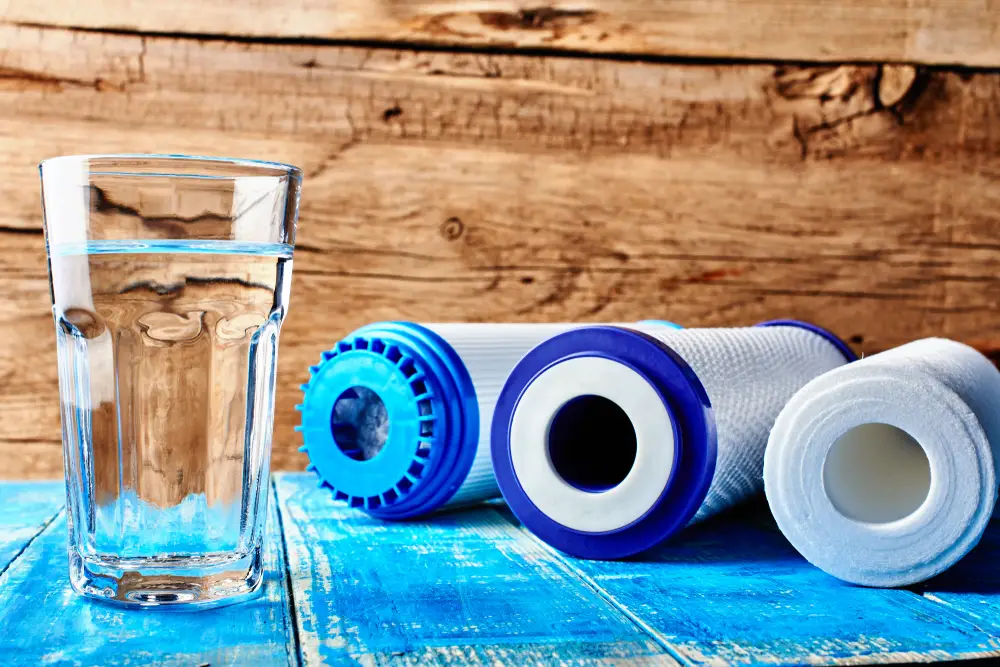
Difference Between Reverse Osmosis & Carbon Filter
|
RO Filter |
Carbon Filter |
| RO Filters push water through semi permeable membrane, pre filtration and post filtration cleaning process to remove sediments that are larger than water molecules. | Carbon Filter uses activated carbon or carbon rich items to excessively attract molecules towards itself. This is done to remove many harmful herbicides, chlorine (a basic contaminant of water), arsenic and mercury. |
| RO Filters are used by chefs as it is effective in cleaning all the sediments off of water and can be used in cooking in highly reputed restaurants. | Carbon Filters cannot ensure thorough cleaning of all sediments, it can only attract contaminants that attract as a margan to carbon rich concoction. |
| RO Filters can cause excessive water wastage. Out of 1/4th of total water seeped through the tap. Only a portion of it that is 20% of it becomes clean. | Carbon Filters do not touch the water surface hence water is not obstructed at all while it flows. |
| RO Filters are not at all environmental friendly, as they induce a lot of energy and water wastage. | Carbon Filters require less energy to operate and further have no issues with water wastage. |
| RO Filters can however, extract some heavy nutrient dense chemicals off of water. For instance, a very rare vitamin often called Vitamin B12 is found on soiled water. It can be extracted out easily through RO Filtration. And B12 is only available nowadays in meat.. Not factory produced as all the feed that are fed to animals used for meat are essentially obese and themselves lack natural nutrients. | Carbon Filters are better in a sense that their filtration process is not perfect. But there is a greater chance that the sediments will still remain in the carbon filter as water molecules except for ones that are attracted through carbonaceous materials, which then seeps in its body. |
What is RO Water Purifier?
RO Water Purifier works in a manner where there is an intense gushing force applied to the water source and it is thrown at the other end of a semi-permeable membrane. There exists a thin net that extracts molecules often larger than water to remain trapped and the reverse side of bad water is released on the opposite side. If we talk about clean water the remaining filtered water proceeds for the post-filtration process. Let us know the exact procedure of the water passing through different levels of semi-permeable membrane:
- First of all the source of the water splashes water into a semi-permeable membrane, it acts just like membranes of living organisms that optimize nutrients and discards waste. Here the membrane separates sediments and even harmful chemicals such as asbestos etc.
- After cleaning process1, There is again a cleaning process2 where now the water enters what we classify as a pre-carbon filtration process. Here carbon acts as a cleanser of the water and its efficacy lies in discarding chlorine, a very common harmful chemical found in our water.
- Once both these cleaning processes are completed, in the last stage there is the addition of flavor and mineral addition is also done by some high-end RO companies.
- It provides the best filtration method
- It can clean water to a sub-micron level
- Automated process system pushes water without manual force for mosquito nets to trap sediments inside the membrane
- Reverse Osmosis filters now take in way less energy
- Battery powered to further help the environmental cause
- While filtering it comprises with nutrition
- Minute detailed molecular cleaning alters the natural taste of the water
- Membranes need to be cleaned every now and then or there is a chance of excessive bacterial growth
- Not at all good if we consider environmental damages incurred as it processes only 1/4th of an entire volume of water
Best RO Filter – Apec RO Water Filter System
Once diving into very deeper minute details about RO Filters. Let us now look at a product and see if it’s the right choice for you.
APEC water system’s RO Filter has definite potential. Some of the key characteristics that make it quite an outstanding product are its features. The features are very top-of-the-line exceptional features. It has a good PSI and a very good catching system of various unclean molecules. Chiefly designed to counter chemical molecules, it is a product to watch out for.
- It has a 40-85 psi force of flushing water down to the membrane
- A cleaning record of 2000 ppm
- It can remove 99% of contaminants
It comes with some exceptional record-breaking experience, it is a 20-year-old leading water filtration system in America. It has two staged filtration processes. The outer material is very solid and made in a well-sought proportion. If there occurs a leak, the outer body won’t collapse. There is no reason for the leak as the outer body has high-grade material. It also has a lead-free faucet and the water tube is also made with high-grade material that does not call for water contamination.
- It has a good water flushing force
- It removes tons of bad chemicals off of water like arsenic, lead and nitrates
- It provides artificial taste to clean water
- It has a 1 year warranty on the product
- It will lead to issues that are generally in relation to water wastage
What is a Carbon Filter in a Water Purifier?
Carbon Filters are manual filters and they act as a succulent for molecules that get attracted to carbon. These Filters have tons of benefits and positive things ingrained. It does not have an issue with water wastage. There is no procedural process in this purifier, just fill in the outer surface with water and the water will be purified in the process. There are however two types of carbonaceous material embedded in the cleaning tube here are these water tubes:
Carbon Filters have what we call Activated and Catalytic carbon. Activated Carbon has a different process compared to Catalytic carbon. Let us know the process in a broader fashion and manner:
- Activated Carbon is exactly the normal carbonaceous material that cleans water through molecule attraction.
- Catalytic carbon is especially an amazing filter and a type of Activated Carbon that sequentially removes chlorine from your water through chemical reactions and chemical changes. You can choose anyone as per the convenience. The 2nd one is a tad bit costlier as it has a broader array of benefits.
Best Carbon Filter – iSpring Whole House Carbon Water Filter
Ispring Carbon Filters are the best and they have some amazing features for themselves. They are a secured alternative when compared to RO Filter. They do not eliminate good minerals from your water. It passes through two filters to clean drinking water unlike traditional carbonaceous material filters
- It does not discard essential minerals
- It is already assembled
- It also has a CTO 2nd stage filter for flavor addition
Ispring specializes in removing many harmful chemicals from Arsenic to Asbestos. It can also get rid of chlorine and VOCs which are pesticides and herbicides. Unlike other carbon filters, this product has two stages of complete filtration where water passes and gets cleaned automatically.
- Has two filters to clean drinking water
- Comes with a cohesive readymade adjustment of parts
- Keeps minerals in bay
- Traps all TDS and that could mean some harmful chemicals dissolved in water might persist
- May find installation a bit tedious.
FAQs on RO and Carbon Water Filters
Following are a few frequently asked questions on Reverse Osmosis and Carbon water filters.
Final Say on RO and Carbon Water Filters
This was all about the Reverse Osmosis (RO) water filters and Carbon filters and how they differ from each other. You very well need to consider the hardness of the water in your area and select the right water filter for your home to maintain the taste and smell.

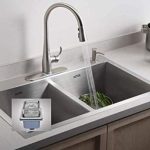
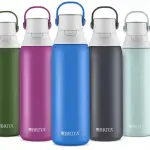
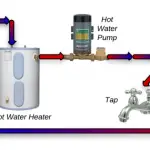
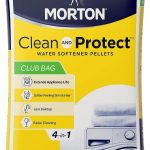

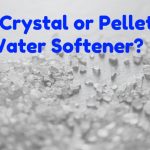
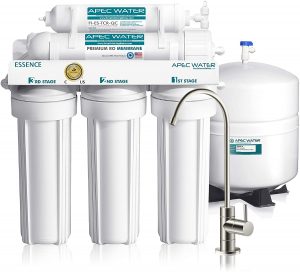
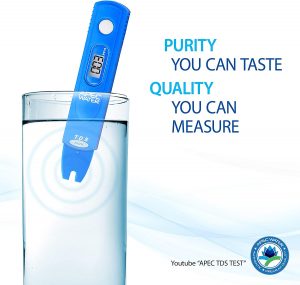
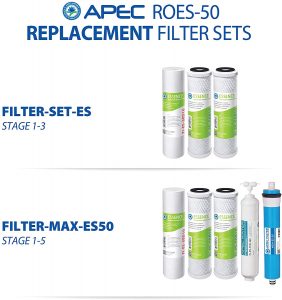
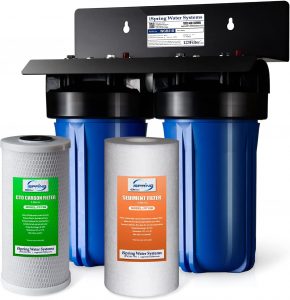
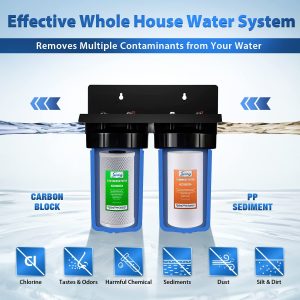
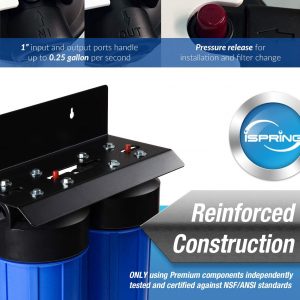




Add Comment